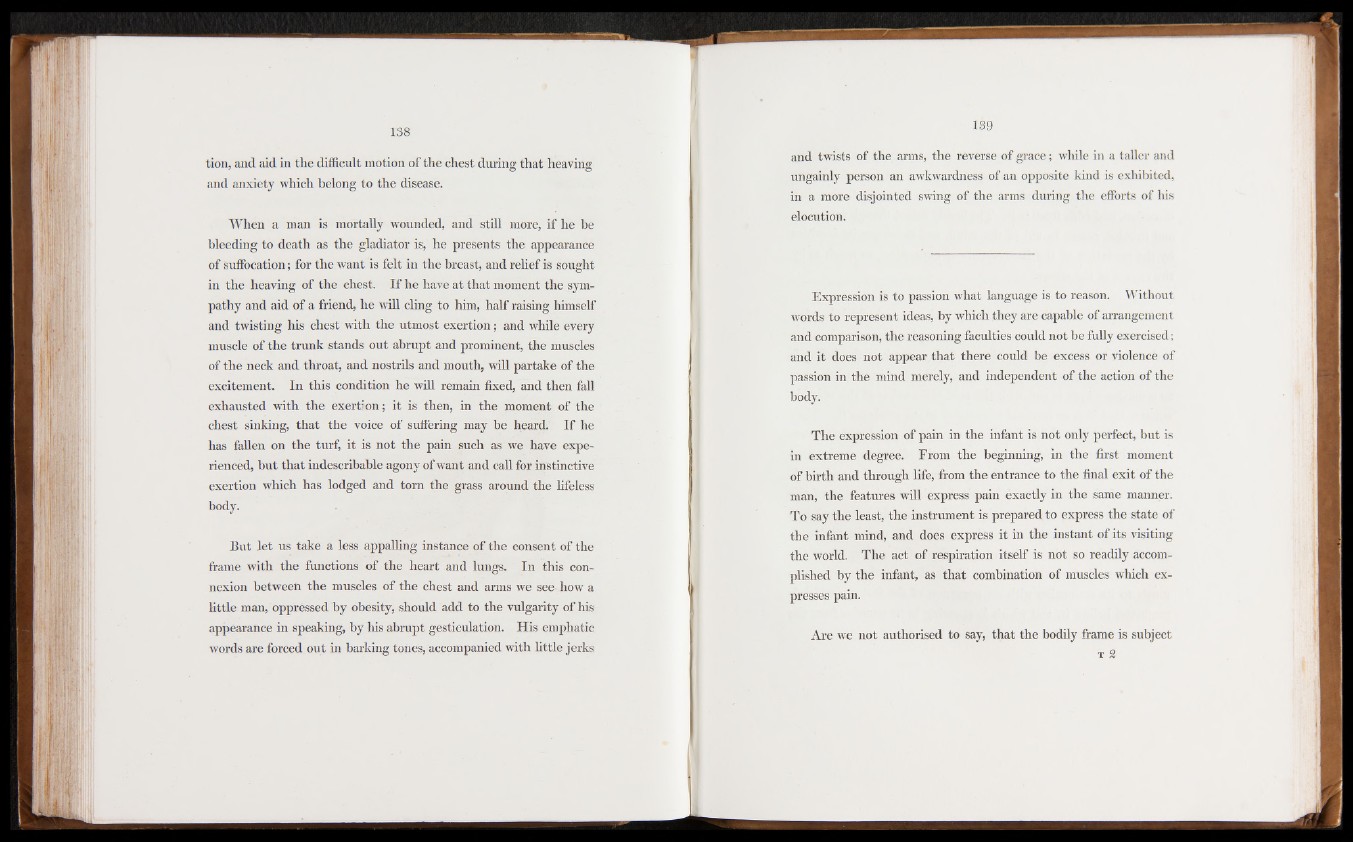
tion, and aid in the difficult motion of the chest during that heaving
and anxiety which belong to the disease.
When a man is mortally wounded, and still more, if he be
bleeding to death as the gladiator is, he presents the appearance
of suffocation; for the want is felt in the breast, and relief is sought
in the heaving of the chest. If he have at that moment the sympathy
and aid of a friend, he will cling to him, half raising himself
and twisting his chest with the utmost exertion; and while every
muscle of the trunk stands out abrupt and prominent, the muscles
of the neck and throat, and nostrils and mouth, will partake of the
excitement. In this condition he will remain fixed, and then fall
exhausted with the exertion; it is then, in the moment of the
chest sinking, that the voice of suffering may be heard. If he
has fallen on the turf, it is not the pain such as we have experienced,
but that indescribable agony of want and call for instinctive
exertion which has lodged and torn the grass around the lifeless
body.
But let us take a less appalling instance of the consent of the
frame with the functions of the heart and lungs. In this connexion
betweeti the muscles of the chest and arms we see how a
little man, oppressed by obesity, should add to the vulgarity of his
appearance in speaking, by his abrupt gesticulation. His emphatic
words are forced out in barking tones, accompanied with little jerks
and twists of the arms, the reverse of grace; while in a taller and
ungainly person an awkwardness of an opposite kind is exhibited,
in a more disjointed swing of the arms during the efforts of his
elocution.
Expression is to passion what language is to reason. Without
words to represent ideas, by which they are capable of arrangement
and comparison, the reasoning faculties could not be fully exercised;
and it does not appear that there could be excess or violence of
passion in the mind merely, and independent of the action of the
body.
The expression of pain in the infant is not only perfect, but is
in extreme degree. From the beginning, in the first moment
of birth and through life, from the entrance to the final exit of the
man, the features will express pain exactly in the same manner.
To say the least, the instrument is prepared to express the state of
the infant mind, and does express it in the instant of its visiting
the world. The act of respiration itself is not so readily accomplished
by the infant, as that combination of muscles which expresses
pain.
Are we not authorised to say, that the bodily frame is subject
t 2